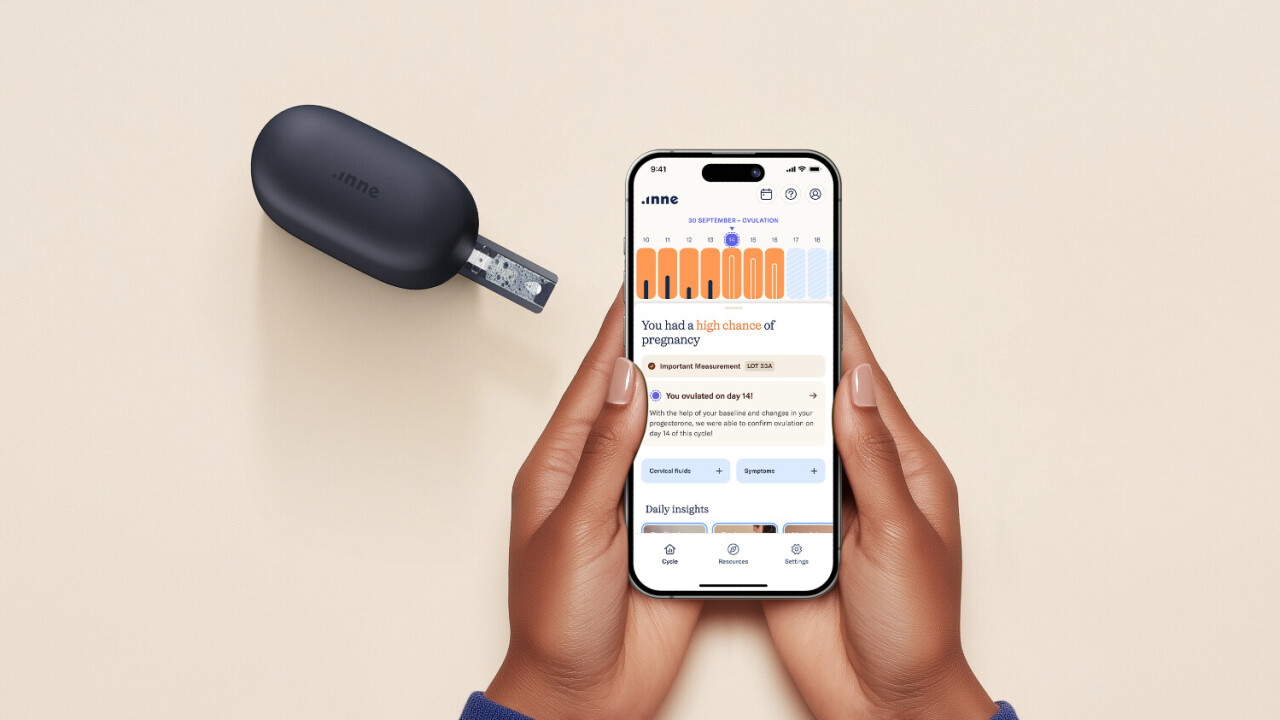A saliva-based fertility tracker has received regulatory approval for use as a contraceptive in Europe.
Developed by Berlin-based startup Inne, the at-home testing device — called the “Minilab” — tracks daily changes in progesterone levels, a hormone that plays a key role in regulating the menstrual cycle. It's billed as a non-invasive alternative to hormonal birth control methods like the pill — and early tests have shown promising results.
A year-long clinical study involving 300 women over 1,500 cycles found Inne's at-home fertility tracker to be 100% effective when used perfectly, and 92% effective for typical use. That's similar to the progesterone pill (99% and 92%), and far more effective than condoms (98% and 82% respectively), according to statistics from the NHS. However, it's worth noting that those forms of contraceptives have been researched for decades while Inne's sample was small and the study has not been peer-reviewed.
Inne's saliva-based Minilab has been available for years as a fertility tracker to help women conceive. But only now has it received official approval for sale as a medical contraceptive device, following a review by the British Standards Institution — one of the key regulators for medical devices in Europe.
Eirini Rapti, Inne's founder and CEO, told TNW in an interview that the tech helps women avoid the potential side effects linked to hormonal contraceptives like birth control pills or IUD implants.
“Once you're off the pill, the first thing you do is start understanding your body — how you feel, how you respond,” said Rapti. “You stop experiencing things like weight gain, migraines, and low libido. And suddenly, you see women really come alive, thinking, ‘Oh, so this is what I actually feel like'.”
Inne is one of several tech-based contraceptive apps and devices to have emerged in recent years, driven by demand for hormone-free options to the pill or IUD.
Period-tracking apps, such as Flo, help women track their fertility windows based on data from their previous cycles. Others, such as Natural Cycles, take that a step further by determining where you are in your cycle based on daily temperature readings.
But, according to Rapti, saliva is more reliable than both those methods because it relies on clearer biological data.
“Period and temperature trackers rely on patterns or symptoms, but your body isn't always predictable,” she said.
“Temperature can fluctuate for many other reasons, like if you're sick or going through perimenopause,” Rapti continued. “Inne looks at what's actually happening with your hormones, day by day — it's just more precise.”
Inne's technology uses a lateral flow strip similar to those used in COVID-19 or pregnancy tests. Users place a small amount of saliva on the strip, which contains antibodies that bind to progesterone hormones. The strip is then inserted into a matchbox-sized reading device that takes photos of the strip over 10 minutes, analysing how hormone particles move and develop across the strip.
The reader processes these photos using biochemistry and image processing techniques to determine hormone intensity, which is then synced to a companion mobile app. From there, users can track their hormonal fluctuations throughout their menstrual cycle, gaining insights into fertility, potential contraception, and overall hormonal health.
Following the regulatory approval, Innie's birth control is now available for purchase in Germany and Austria, with plans to expand to the UK later this year.
The Minilab will be available on subscription only. Prices start at €24 per month if you pay up front for a two-year subscription. The device recently received coverage from Germany's largest public health insurer, and Inne plans to extend coverage to more providers in the future.
Ultimately, Rapti wants to make saliva-based testing a readily available option for women everywhere. “It won't be everyone's first choice, but we believe it's a really good alternative that allows women to take back control of their bodies and their health.”
